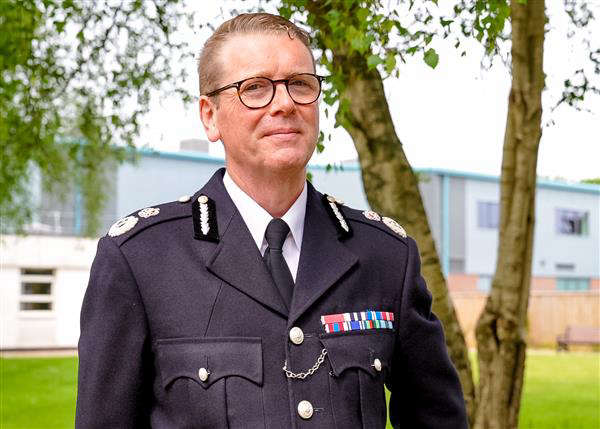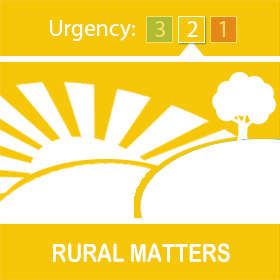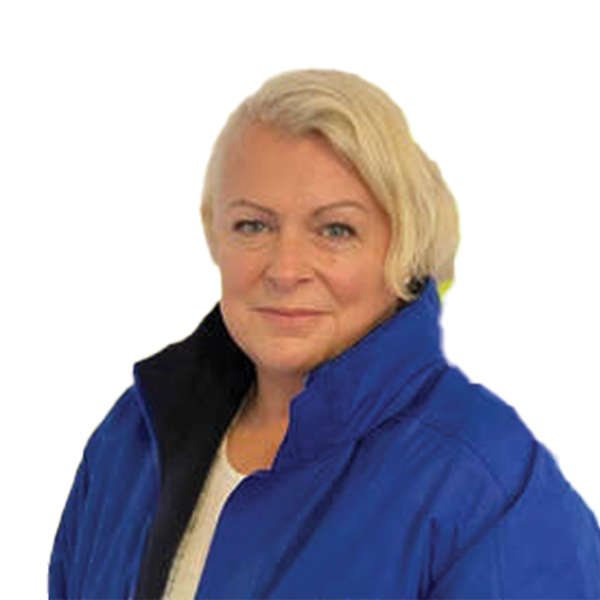
Patients in England will be able to get treatment for seven common conditions at their high street pharmacy without needing to see a GP, as part of a major transformation in the way the NHS delivers care.
More than nine in ten community pharmacies in England – 10,265 in total – will be offering the ground-breaking initiative, with the health service making it easier and more convenient for people to access care.
Highly trained pharmacists will be able to assess and treat patients for sinusitis, sore throat, earache, infected insect bite, impetigo, shingles, and uncomplicated urinary tract infections in women (under the age of 65) without the need for a GP appointment or prescription.
The major expansion of pharmacy services will give the public more choice in where and how they access care, aiming to free up 10 million GP appointments a year.
The scheme is part of the NHS and government’s primary care access recovery plan, which committed to making accessing healthcare easier for millions of people.
It builds on the successful expansion of the contraceptive pill service in December 2023, with more than 5,300 pharmacies [5,367] in England now offering women the chance to get a supply of oral contraception over the counter from their pharmacy without needing to first see their GP.
In future, the NHS expects almost half a million women a year to receive their contraception from their high street pharmacist.
Amanda Pritchard, NHS chief executive, said: “GPs are already treating millions more people every month than before the pandemic, but with an ageing population and growing demand, we know the NHS needs to give people more choice and make accessing care as easy as possible.
“People across England rightly value the support they receive from their high street pharmacist, and with eight in ten living within a 20-minute walk of a pharmacy and twice as many pharmacies in areas of deprivation, they are the perfect spot to offer people convenient care for common conditions.
“This is great news for patients – from today you can pop into one of more than 10,000 high street pharmacies in England to get a consultation on seven common conditions including ear-ache, a sore throat or sinusitis at a convenient time, with many pharmacies open late into the evening.
“This is all part of major transformation in the way the NHS delivers care, with the health service determined to giving people more choice in how they can access treatment.”
Community pharmacies already play a vital role in keeping their local communities healthy and well. And Pharmacists are now ramping up the number of life-saving blood pressure checks given to at-risk patients over the next year with a commitment to deliver 2.5 million a year by Spring 2025 – up from 900,000 carried out in 2022. It is estimated this could prevent more than 1,350 heart attacks and strokes in the first year.
The Government has made £645 million of new funding available to support the continued expansion of community pharmacy services.
Prime Minister Rishi Sunak, said: “Community pharmacies already do a tremendous job at treating minor conditions and with the Pharmacy First service – backed by £645 million – we’re determined to go further and unlock their full potential to deliver routine care.
“Patients who need treatment or prescription medication for common conditions like an earache will now be able to get it directly from a pharmacy, without a GP appointment.
“This is about ensuring people get the treatment they need closer to home, while crucially helping deliver on our plan to cut waiting lists, by freeing up 10 million GP appointments a year, so people get the care they need more quickly.”
Secretary of State for Health and Social Care, Victoria Atkins, said: “I’m determined to deliver faster, simpler, fairer access to care for patients, and the expansion of Pharmacy First will mean patients can get treatment for common conditions without needing to see their GP first.
“This is good news for patients and good news for the NHS. It will free up millions of GP appointments per year and mean that patients can get quick and effective treatment from their local pharmacy.
“As four in five people live within a 20-minute walk of a pharmacy, for many seeing their local pharmacist will be the easiest option – so this initiative will have real benefits for patients and help cut NHS waiting lists.”
Dr Claire Fuller, NHS medical director for primary care and the NHS’ lead GP in England, said: “This is a wonderful move to increase accessibility to healthcare for patients.
“We all live increasingly busy lives, and this gives people more options on how and where they access care. This will also relieve pressure on our hard-working GPs, freeing up millions of appointments for those who need them the most.”
A recent Ipsos survey showed nine in ten people who used a pharmacy in the last 12 months to get advice about medicines, a health problem or injury had a positive experience.
David Webb, Chief Pharmaceutical Officer for England, said: “Pharmacy teams play a very important role in the community as part of the integrated NHS primary care team, and this expansion of clinical services means patients will have more choice in accessing the care they need. This will give people more convenient options at the heart of local communities, without needing to book an appointment.”
Primary Care Minister Andrea Leadsom, said: “When suffering from conditions like sore throat or earache, we know that patients want to be able to access the care they need quickly.
“Pharmacy First gives you choice, and the ability to be seen faster to get the care you need, providing easier and quicker access.”
Chair of the Royal Pharmaceutical Society in England, Ms Tase Oputu, said: “Pharmacy First is a leap forward in improving patient care by making treatments for a range of conditions more accessible from community pharmacies.
“The expansion of clinical services not only empowers patients with greater choice on where and how they receive care, but also makes the most of the valuable skills of pharmacists and their teams. Pharmacy teams have made an incredible effort to get the service ready alongside all the additional pressures they face. It’s an exciting transformation, helping to reshape the landscape of primary care.”
Paul Rees, Chief Executive of the National Pharmacy Association, said: “Pharmacies are the front door to the NHS so it’s good news for communities across England that pharmacies will be treating millions more patients with common ailments through Pharmacy First.
“Pharmacy First will improve access to healthcare, play to the strengths of pharmacists as medicines experts and free up GPs for other work that requires their particular skills. Patients will get convenient clinical advice, close to where they live, work and shop.
“The pharmacy sector is under great pressure but, despite this, pharmacy teams will step up and successfully deliver this highly beneficial service.
“This could be a stepping stone to the development of other NHS clinical services in the future, as patients become familiar with going to their local pharmacy for primary care.”
Janet Morrison, Chief Executive of Community Pharmacy England, said: “Today is a big day for community pharmacies who have been working incredibly hard to get ready for the launch of Pharmacy First. The service marks a step-change for pharmacies, patients and the public, and one that we hope to build on for the future. By choosing to go to ‘Pharmacy First’ for the seven common conditions, people can get help faster, freeing up GP appointments for those who really need them. We strongly encourage the public to make full use of this service for convenient, easy access to healthcare advice, support and appropriate treatments from expert pharmacists and their teams.”
Malcolm Harrison, Chief Executive of the Company Chemists’ Association, said: “Pharmacy First will enable patients to receive advice and, if required, treatment for seven common healthcare conditions from 10,000+ pharmacies across England without the need to visit their GP.
Offering this free NHS care from community pharmacies will dramatically help improve access for patients and will free up GP capacity at a critical time for the NHS. We are confident that as this service launches, the community pharmacy sector will deliver for patients and the NHS, just as it did during the Covid-19 pandemic.
Dr Leyla Hannbeck CEO of Association of Independent Multiple Pharmacies said: “Community pharmacies’ unique and unequalled access is the best option for delivering better and more convenient care for patients and improve compliance, outcomes and wellbeing. We are pleased that pharmacy first service is now available to patients in England and we look forward to delivering these services.”
Rachel Power, Chief Executive of the Patients Association, said: “We welcome Pharmacy First, an expansion of community pharmacy services. Giving pharmacists the right to provide more medicines and initiate treatments, expands choice for patients. We believe Pharmacy First will increase access to care for many patients who need help with common health problems.”
Jacob Lant, Chief Executive at National Voices, said: “We often hear from our members, over 200 health and care charities about the importance of community pharmacy in helping people to access help and support at a time, in a location and in a way which works for them. In offering more meaningful choices, and therefore helping to break down some of the barriers to access, our hope is that the launch of Pharmacy First will be a positive move for everyone, especially people living with long term health conditions and for people at risk of experiencing health inequalities.”
Louise Ansari, Chief Executive, Healthwatch England, said: “As with access to the contraceptive pill announced last month, patients will welcome the extension of pharmacy services to include common conditions. It will offer them greater flexibility and provide a safe alternative to seeing a GP, which we know remains a real challenge for many people across England.
“It will, however, take time for pharmacists to get trained and ready for change. Patients and GP services need up to date information on which of their local pharmacies are offering direct supply of medicines for one, some, or all seven of the new conditions. Investment in a national campaign to raise awareness of the new services and build trust in pharmacists will also be essential and, crucially, this will need to reach all communities to be effective.”

 Criminal investigation into suspended Chief Constable dropped
Criminal investigation into suspended Chief Constable dropped
 Devon families receive their primary school place offers
Devon families receive their primary school place offers
 Theft of Quad Bike / Livestock Trailer and / Farm Tools - Tiverton and Withleigh Area
Theft of Quad Bike / Livestock Trailer and / Farm Tools - Tiverton and Withleigh Area
 Stay vigilant for ticket fraud ahead of top events and concerts this summer.
Stay vigilant for ticket fraud ahead of top events and concerts this summer.











